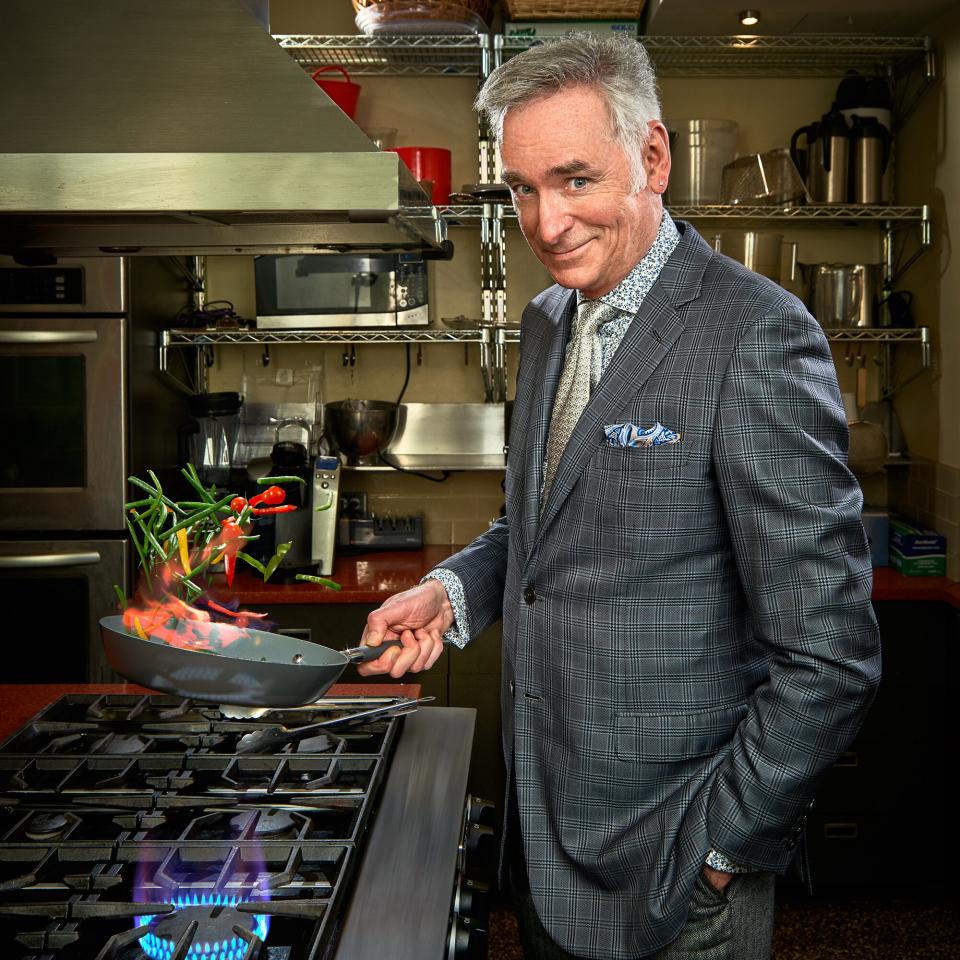This Doctor Is Prescribing Food as Medicine, and It's Making Patients Healthier
Given the fact that heart disease is the leading cause of death in the U.S.—with stroke, cancer and diabetes close behind—and that obesity rates continue to rise, you'd think that medical schools would train aspiring physicians on a key preventive measure: nutrition. Surprisingly, that isn't the case. At last count, only one-fifth of medical schools required any nutrition training. And a study that tested fourth-year medical students' basic knowledge about things like healthy eating and weight loss found they could only answer, on average, about half of the questions correctly. Other research shows that fewer than half of doctors talk to patients with weight-related disease about how diet affects their health. The problem is so rampant that a 2019 review of 66 studies, published in The Lancet, concluded, "It is clear that despite the centrality of nutrition to [a] healthy lifestyle, graduating medical students are not supported through their education to provide high-quality, effective nutrition care to patients—a situation that has gone on for too long."
Timothy Harlan saw this firsthand when he was training to be a physician, and set about rectifying this critical gap in 2012. "Food has to be part of our practice," he says. Harlan, who cooked professionally in his 20s, designed a "Health meets Food" course at Tulane University Medical School in New Orleans, where students learn about nutrition and biochemistry and cook dishes consistent with the Mediterranean diet, which emphasizes whole grains, fresh produce and healthy fats. They then go out and teach cooking courses in the community.

BILL WADMAN
A recent clinical trial evaluating the program found that local residents who took the classes made significant improvements in their diet and reduced their cholesterol and A1C blood sugar levels. The med students benefited too. Not only did they feel better able to counsel future patients on eating to improve health outcomes, they also improved their own diets.
But Harlan wasn't satisfied just running the program at Tulane. He wanted every med school in America to teach it. And now, more than 60 colleges and institutions around the country offer the "Health meets Food" curriculum—and Harlan and his team have created more than 30 continuing-education modules for practicing doctors and nurses.
Last year, he brought the program to an even bigger audience. In January 2020, Harlan joined George Washington University's School of Medicine, in Washington, D.C., to make their Culinary Medicine Program the nexus of food and nutrition education. He also teamed up with the National Institutes of Health and partner sites across the country to expand research into the longterm benefits of the "Health meets Food" program.
The cooking classes went remote when the pandemic shut D.C. down, but Harlan and his team were still able to teach over 100 online courses to med students and community members— plus more than 2,000 people have participated through the network of medical schools offering "Health meets Food." Harlan is amazed how people from all over the country, and from all socioeconomic levels, have embraced the virtual classes—cooking and eating together through their screens. "It's been freaking amazing," he says. "And it expands our scope dramatically."

